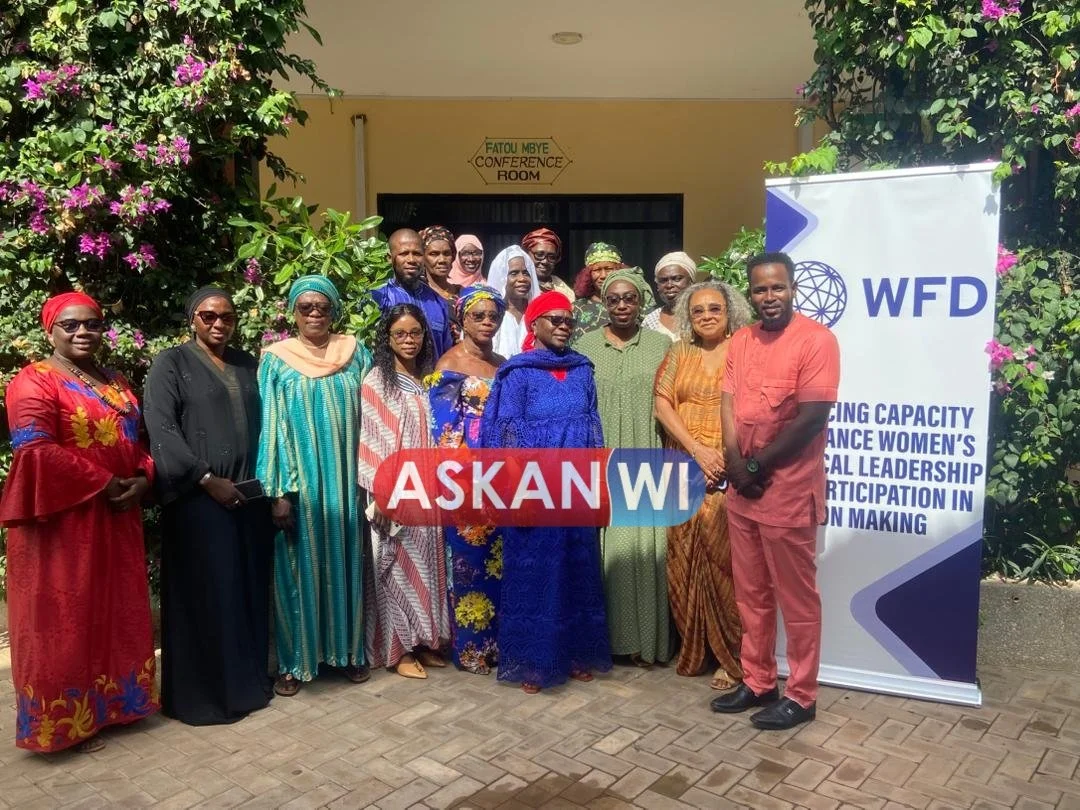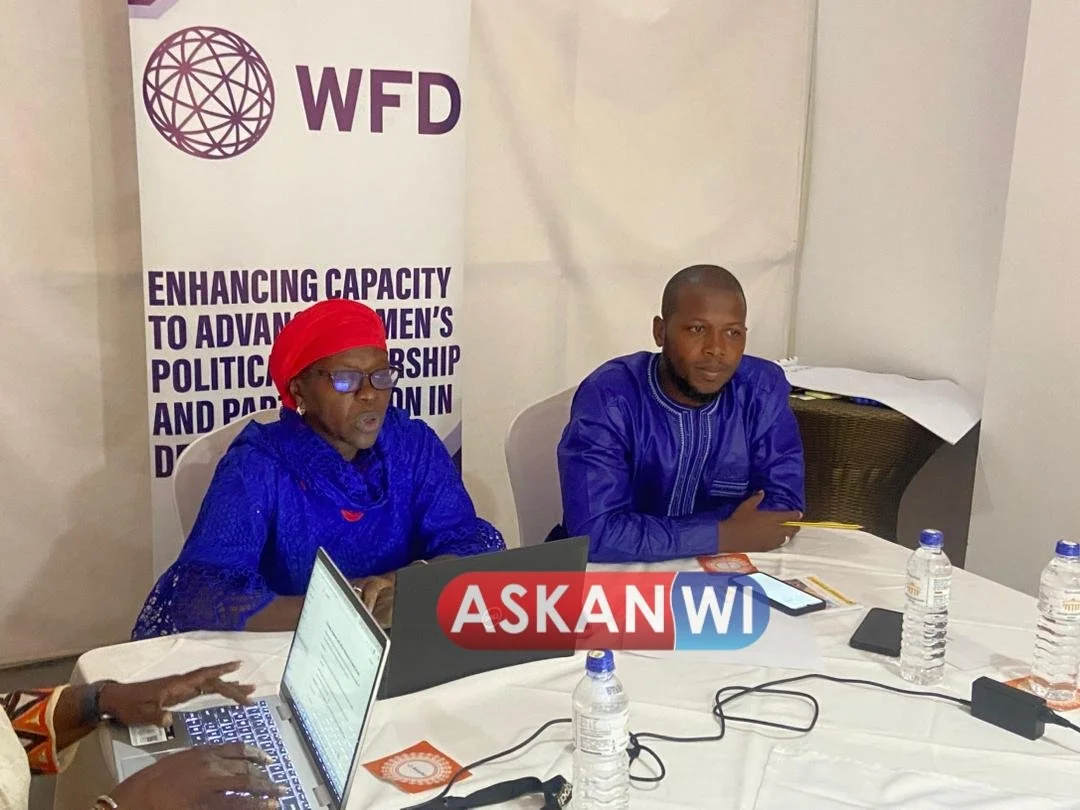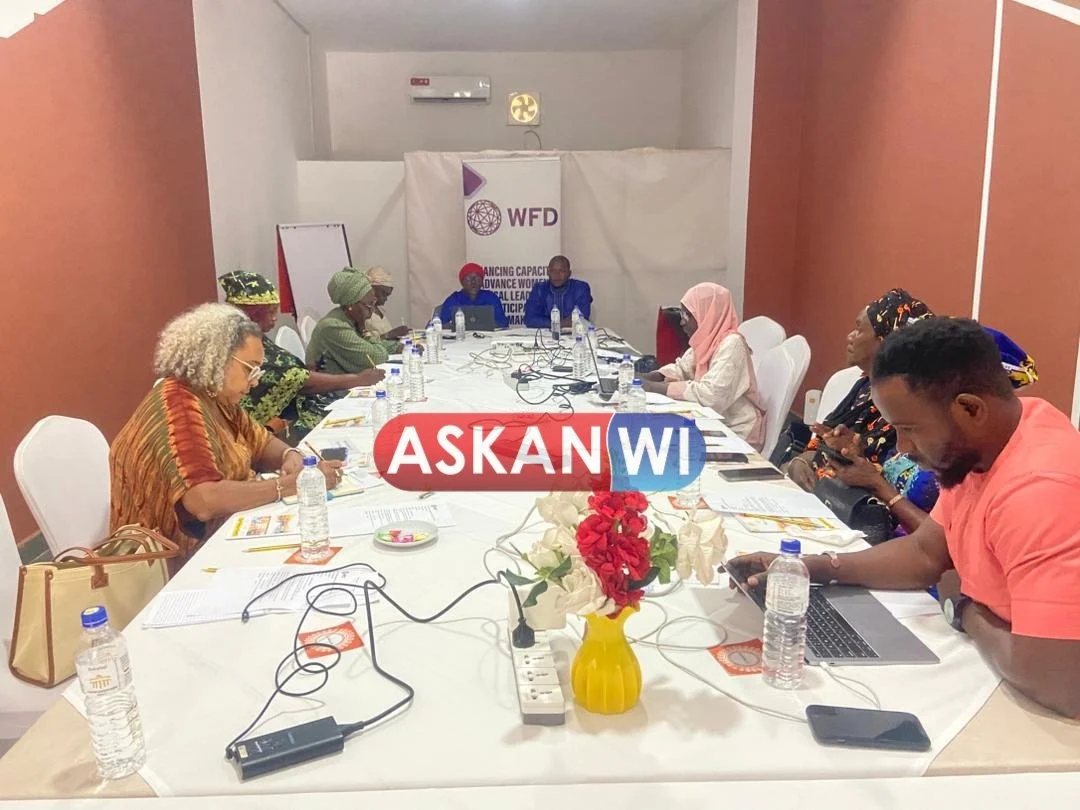WFD Hosts Workshop to Advance Women’s Political Leadership in The Gambia
Group photo © Askanwi
By Haddy Ceesay,
The Westminster Foundation for Democracy (WFD) convened a Political Leadership Diagnostic Workshop on Friday, 18 July 2025 at Bakadaji Hotel in Kololi aimed at boosting women’s participation in political leadership and decision-making in The Gambia.
Despite the 1997 Constitution guaranteeing equal opportunities for all, women remain significantly under-represented in Gambian politics. With only four female parliamentarians in the current Sixth Legislature and fewer female ministers, barriers such as discrimination, bullying, harassment, and limited access to political party structures continue to discourage many women from entering or advancing within political spaces.
The workshop brought together a diverse group of participants, including women from across political parties, National Assembly members, civil society representatives, and stakeholders supporting democratic governance. Together, they examined the systemic and cultural obstacles hindering women’s political advancement and explored strategies to create more inclusive leadership pathways.
In her opening remarks, Madam Tabu Njie Sarr, WFD Country Director, emphasised the vital role of women in fostering accountable and inclusive governance.
“Women are key agents in political transformation,” she stated. “Your roles in supporting institutions, campaigning for parties, and advocating for greater inclusion of women and marginalised groups are critical. You must champion transparency, demand accountability, and help shape progressive political systems.”
Sarr highlighted the lack of gender mainstreaming within political party structures and noted that women, youth, and persons with disabilities often face entrenched barriers when pursuing leadership roles. She warned that the country is witnessing a regression in women’s representation at key decision-making levels and called for a renewed, cross-party commitment to reversing this trend.
Madam Tabu Njie Sarr of WFD and Muhammed S Bah © Askanwi
The workshop is part of WFD’s 2025–2026 Women’s Political Leadership (WPL) Programme, designed to facilitate informed dialogue around the barriers to women’s leadership and promote inclusive political decision-making. As part of the initiative, WFD will undertake two new studies on political representation and leadership trends to inform future programmes and advocacy efforts.
Workshop Objectives
Organizers outlined four core objectives for the workshop:
Increase understanding of power dynamics within political parties and civil society structures.
Promote gender-sensitive policies and practices within political institutions.
Improve transparency and fairness in the selection of electoral candidates, particularly women and persons with disabilities.
Strengthen advocacy strategies for integrating gender perspectives across political processes.
Engaging and Interactive Discussions
Interactive sessions formed the core of the workshop. Participants were divided into working groups to explore key thematic areas:
WPL Ecosystem Mapping & Power Relationships: Using guiding questions such as “Where does power lie?” and “Who pulls the strings?”, participants mapped formal and informal centres of influence across The Gambia’s political landscape.
Women’s Power Across Sectors: Groups assessed women’s participation and influence in political parties, civil society, media, and the Inter-Party Committee, identifying leadership entry points.
Threat Assessment to Women’s Political Leadership: Facilitators led a review of risks such as harassment, political bullying, and exploitation faced by women seeking or occupying political positions.
Safeguarding and System Maintenance: Discussions focused on the effectiveness of party policies, communication systems, and reporting mechanisms in protecting women and marginalised groups from abuse.
During plenary feedback, participants shared candid testimonies about gatekeeping in candidate selection, the absence of clear complaint mechanisms, and the need for stronger internal accountability within parties. Many called for enforceable anti-harassment policies, transparent candidate selection processes, and mentorship programmes for young women entering politics.
Closing the event, Sarr called on political stakeholders to set aside partisan differences and commit to a united effort to elevate women’s leadership for the nation’s progress.
“Women’s voices are critical at this time,” she said. “Expanding women’s participation in leadership and decision-making is not just a gender issue—it’s a national development imperative.”
Delegates at meeting © Askanwi



